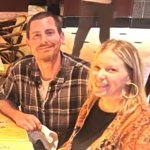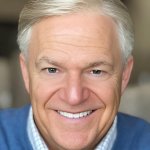NORTH WILDWOOD – As Covid’s strain on the globe continues, daily routines and rhythms slowly remerge. Yet, the landscape is different, especially for churches and congregations.
Faith Matters spoke with four faith leaders, and one treasurer, of various denominations, regarding the “new normal.”
Will churches experience full attendance? Will ministries transform as congregants meet in private homes, i.e., “bubbles,” instead of traditional spaces? Answers vary, creating a collage of the state of churches in Cape May County.
The question boils down to this: Will ministries survive financially?
Crunching Numbers
As municipalities and businesses prepare a yearly budget, church leaders undergo the same task. Monies, given by congregants, are mainly deposited into a general account, while specific offerings are set aside for missions programs, outreaches or special projects.
A treasurer is responsible for balancing a church budget, overseeing accounts and regularly preparing reports.
Peter Golamis, treasurer, First Baptist Church of Anglesea, in North Wildwood, shared his experience Feb. 25.
He was nominated and elected treasurer in 2000. He is a member of the church and has served as a deacon since 1998.
“I enjoy the aspect of serving as treasurer,” Golamis wrote via email. Paying bills and keeping track of the payroll are part of his responsibilities.
Despite Covid’s economic impact, all accounts are “solid,” according to church officials.
Golamis stated that giving “increased” during the pandemic. Although it has a smaller congregation, First Baptist continues supporting its missions program and holds in-person services, per state guidelines.
Adapting to Change
Located near First Baptist, the North Wildwood United Methodist Church faces similar demographics and challenges. Rev. Kate Aaronson came to the church in early 2020, just before lockdown. Her first year as pastor was anything but “normal.”
“Covid has had a devastating impact on so many churches,” she said, during a Feb. 23 phone interview. However, the impact on North Wildwood Methodist is not as “dramatic,” according to Aaronson.
The Federal Paycheck Protection Program (PPP) helped, but “not enough,” she said, leaving many churches with hard decisions. Can the doors stay open, or is merging with other smaller churches the answer?
North Wildwood Methodist merged with the Wildwood Crest congregation, in recent years, and is financially solvent. Costs are kept low by not hiring office personnel, and Aaronson is thankful for volunteers.
“We’ve been on this corner for 123 years,” Aaronson said. The only time the church was closed was during the lockdown and after the infamous 1962 nor’easter. The Methodist hierarchy allows each church to decide if they will open.
To keep people connected, Aaronson created a conference-call system for members to hear the sermon and loved ones’ voices. Wearing masks and social distancing guidelines are observed by those who attend in person.
“Not everyone can use Zoom,” Aaronson clarified.
The congregation’s offerings are “generous,” according to Aaronson; $16,000 was given to missions, in 2020, without harming the church financially.
Aaronson said the Christian church faced changes before and will find its way forward. She plans to continue offering virtual options alongside in-person worship.
“We will remain in our sanctuary,” Aaronson said.
Aaronson is confident that the Christian church will learn discernment in adapting to changes Covid created. She also believes the need for community will grow, as congregations return in person.
Virtual participation, i.e., livestream, Zoom, and phone, will coexist with in-person worship for the foreseeable future, according to Aaronson.
Infrastructure Changes
The Rev. Alan Leonard, of the Episcopal Church of the Advent, in Cape May, cannot fully decide when his church is opened or closed. As a member of the church, Leonard must confer with the bishop, who approved their reopening plan, in 2020.
Despite the lockdown, the Church of the Advent “did better than break even,” regarding finances, according to Leonard. The church applied for a PPP loan, which was forgiven in January 2021.
“We did okay last year,” Leonard said Feb. 23. The church’s income is “tracked” in pledges, plate offerings and rental income. Current guidelines prevent the rental of church facilities. Yet, according to Leonard, the budget for 2021 remains $250,000.
Leonard remains “optimistic” for the Lent and Easter season, but is concerned with how the Holy Eucharist will be served safely.
“I think things will change a bit,” he said.
How churches will function in the future also concerns Pastor Matt Stokes, of Coastal Christian, in Ocean City.
Stokes pastors one of the largest churches in Cape May County. Coastal Christian holds three services each week: Two on Sunday morning and one on Thursday. Members and visitors must register online, to meet occupancy requirements.
Digital ministry propelled the technology team to create a “high quality” program. Human needs, i.e., counseling, food, etc., also prompted action from the church staff. For Stokes, his schedule grew busier, not slower, because of Covid.
“We are in a secure place,” Stokes said, referring to finances. Giving increased during the pandemic, and over $40,000 was sent to India, in 2020.
“The church is growing,” Stokes added. Three new staff members joined the team, as Stokes prepares for an influx of new, post-pandemic members.
New Model
Pastor Bill Laky, of Revolve Church, faces the same struggles of other county congregations and brings his perspective. Perhaps the answer to financial issues lies in “decentralized ministry,” instead of the traditional model.
A former missionary in Spain, Laky seeks to implement a less “professional” Christianity by empowering members to help and serve each other.
“Smaller may be better. The megachurch has an expiration date,” Laky said. He believes the church needs to “live and walk in community,” not relying on a business model.
Revolve meets at Two Mile Landing Restaurant and, according to Laky, has not renewed its lease, in North Cape May. By not having a “traditional” meeting space, costs are lowered, as the congregation discusses what is essential.
“Will we ever go back to normal?” Laky asked. He praises the members as they talk through “hard decisions.” By meeting in home groups, Laky said, members can interact in “social bubbles” if they cannot attend corporately.
The people of Revolve are a “diverse congregation,” said Laky, and endured hard times due to Covid.
“Our hope is if the face of the church changes, it is because the Holy Spirit led it,” Laky said. He desires for members to trust God to provide their needs as individuals and as a church.
“The church in America needs to transition,” Laky concluded.
Change has come and will come again, but the Christian churches of Cape May County are meeting challenges with an emphasis on hope and serving one another.
Faith Matters is an ongoing series exploring the connection between individuals and their faith, impacting their families, community, and beyond. Those with a story of faith to share should contact the writer at rrogish@cmcherald.com.
Middle Township – If God created the universe and thus the Earth, then he also created all men and women, of all races. If you have hate for other races, or non heterosexual people, then you hate God's own work.








